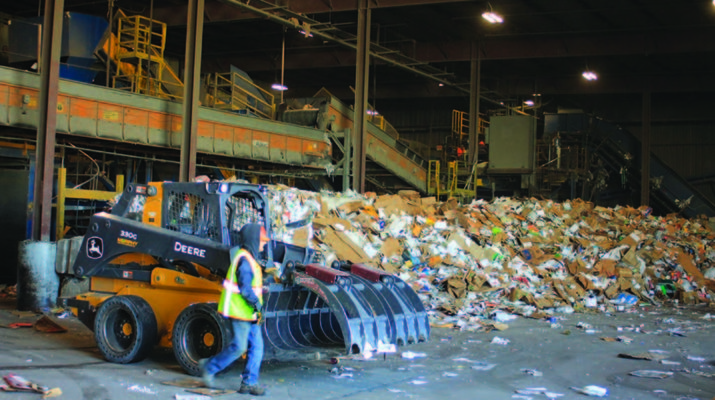The opening notes of “Stars” blared from my cell phone. Six o’clock Central Time. Daylight Savings ended a few dozen hours ago then we had hopped time zones on our Keep Alliance Beautiful adventure to Omaha. So . . . Monday in the city, time for a walk.
Earlier this year my wife and I joined KAB Executive Director Kathy Worley in Memphis, Tenn., for the national Keep America Beautiful Conference. As a couple my wife and I enjoyed exploring that downtown as well during our hours away from the hotel. Of course the differences are many between what I saw recently in Omaha compared to Memphis in mid-February. The metropolitan area of the western Tennessee city contains right at 1.15 million residents compared to 850,000 in Omaha (about 100 times larger than Alliance). As a KAB employee the greatest contrast was the availability of recycling for residents and visitors. Outside of the convention there was not one bin anywhere, in Omaha they could be found on nearly every block as well as the lobby and rooms at the hotel.
With this impression of the two biggest cities I have visited in 2020 in the back of my mind, I walked back into the hotel lobby and met Barb and G.O. for breakfast. Soon Kathy joined us and we drove to Firststar Recyling.
KAB serves Box Butte County and the surrounding area. It is not uncommon for a loaded pickup to arrive from the Sandhills or Dawes County. Our tour guides, Danielle Easdale and Jeff Heck, explained that the company’s Omaha facility draws mainly from a 200-mile radius though they also receive material from Western Nebraska, noting Ogallala “operates as a nice hub,” as well as parts of Colorado, Missouri and Kansas.
Like KAB, Firstar serves both residential and business customers.
Although the city of Alliance supports our local Keep America Beautiful affiliate financially, our curbside program is a subscription service operated solely by KAB employees. In Omaha, curbside is funded through residents’ taxes and thus a more popular and larger portion of Firststar’s input than their dropoff sites. In Alliance, curbside collections are bagged then (ideally) opened and sorted over the next two weeks before the next pickup. Trucks back into an expansive bay at Firststar to unload a loose mixture from what will soon be 96-gallon carts throughout Omaha. This is where their sorting starts as skid steers feed the first machine in the process. At Lincoln, where the company operates another facility, people pay $11-$15 a month for curbside recycling. The capital city has been proactive in reducing waste with a ban on cardboard in their landfill.
On the business side, KAB primarily gathers cardboard using containers provided at their respective locations although we accept any other recyclables they may have. Heck said that they handle pre- and post-consumer material from corporate customers.
I have had a few people ask where the Hefty Energy orange bags end up. Our bales of compressed grocery sacks, etcetera, find their way to the building we toured. Heck and Easdale pointed out a pile of the pumpkin colored bags. They said they have been seeing 20 tons a month of the bags from commercial and residential sources. After starting with 6,000 homes, every household in Omaha now has an orange bag starter kit.
So, now we can tell people where the orange bags go. G.O., however, wanted something tangible to show what all that previously unrecyclable plastic becomes. After the walk through our hosts handed him a surprisingly stout chunk of plastic lumber crafted from the bags’ contents. Though that product is manufactured in Canada, Heck revealed Firstar’s Omaha plant will soon include the equipment to blend these multiple grades of plastic to make plastic boards on site.
Next week I plan to explore the “why and how” of our Omaha tour.

